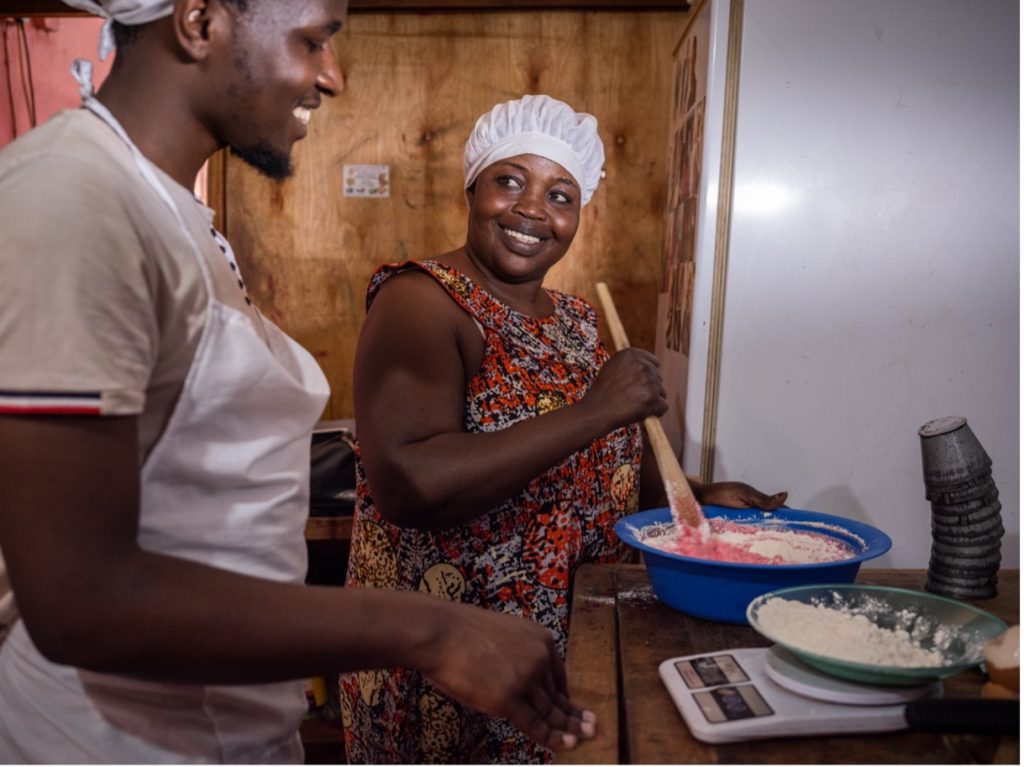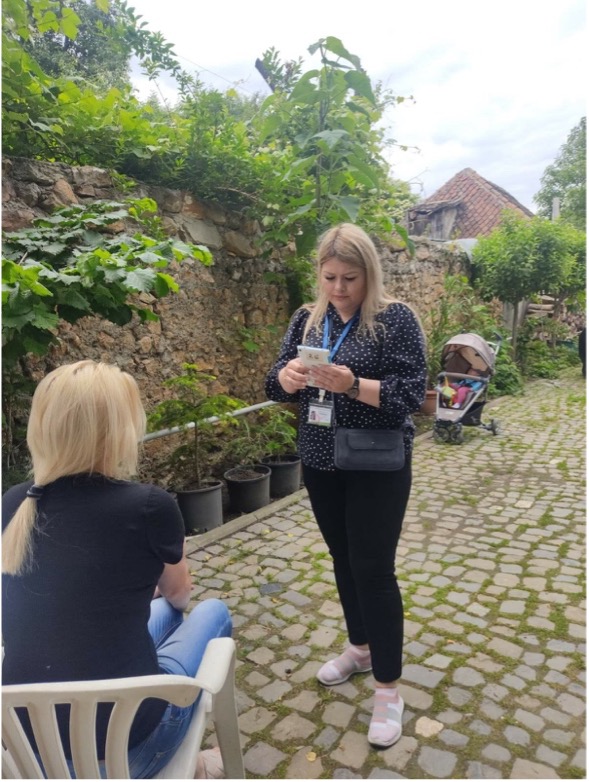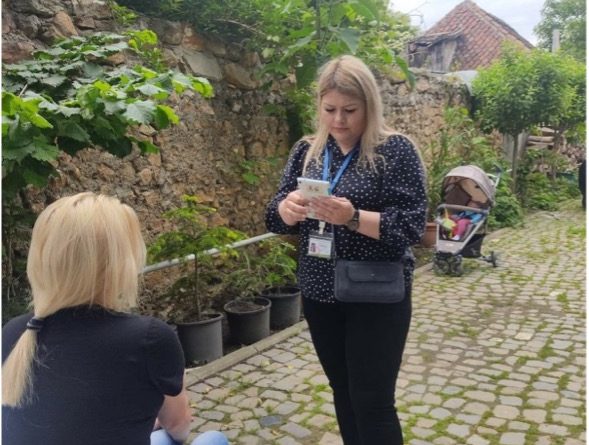Notes from the Field: Updates from our research partners in Uganda and Ukraine
In this issue of Fresh FINDings, our colleagues from the International Rescue Committee and Women’s World Banking share findings and updates from their research on the ground. This newsletter explores the projects, policies, and less restrictive regulations that may help refugees succeed in accessing better financial services and continue on a path to stronger financial health.
Please visit the Journeys Project at Tufts University for previous studies, ongoing research, videos, maps, and artwork on refugees and migrants around the world.
This month…
- Financial Integration in Displacement – Pilot Findings from Yumbe and Kampala
- Ukrainian Women Refugees Turning to Financial Inclusion to Ensure Financial Literacy
Financial Integration in Displacement – Pilot Findings from Yumbe and Kampala
The International Rescue Committee is pleased to share its new brief “Financial Integration in Displacement – Pilot Findings from Yumbe and Kampala”. Building on the Finance in Displacement research findings and recommendations, the IRC designed and implemented two pilots to address context-specific barriers to refugees’ economic and financial well-being in a rural (Yumbe) and urban (Kampala) setting.
.

In Kampala, the IRC tested a new model of apprenticeships which integrated financial literacy training and business grants into the program and encouraged its 40 clients to self-select their apprenticeship hosts. In Yumbe, 600 clients formed into 20 farmer groups of mixed hosts to refugee ratios and worked together on sunflower production. The groups received Good Agronomic Practices (GAP) training, farmer-based financial literacy training, as well as inputs and linkages to a leading sunflower oil production company.
The pilot on apprenticeships in Kampala found that refugees reported increased confidence in their technical and business skills, financial literacy, and ability to make informed decisions. Additionally, there was a 40% increase in the number of refugees who believe that their professional social network currently provides them with enough support to grow their business or find employment. In Yumbe, both host community members and refugees experienced large increases in their monthly household income and number of days worked per month. Furthermore, access to and use of banks and microfinance institutions increased, but overall access and use remains quite low.
Based on the pilot results, the IRC drew up key recommendations for actors in the refugee response sector. Multi-year flexible funding is crucial for conducting this type of formative research. Policymakers should provide easily accessible information to refugees through official channels about opportunities to pursue employment or business activities; improve access to mainstream financial services; and strengthen social networks and exchanges between refugee and host communities.
The Finance in Displacement research project, a collaboration between the IRC, Tufts University and Catholic University Eichstaett-Ingolstadt, studied the financial lives of displaced populations in Uganda, Kenya, Jordan, and Mexico between 2019 and 2021. Final combined results can be read in this Joint Lessons Report.
Ukrainian Women Refugees Turning to Financial Inclusion to Ensure Financial Security
This Spring, Women’s World Banking set out to understand the financial lives of Ukrainian refugees, nearly all of whom are women. Coupled with other research on refugees, Dr. Sonja Kelly, who was featured in our May newsletter, provides us with a case update. This case offers lessons to policymakers and financial service providers alike on how to best support refugees to ensure they can meet their financial goals, even when far from home.
.

.
When Iryna, a hairdresser with a young daughter, fled from Ukraine to Romania she knew she needed to earn money to support herself in a new place. Thanks to laws that supported her ability to work, she was able to secure a chair in a local salon. However, Iryna needed supplies, and she wanted to buy online. To do so, she opened a local bank account in Romania, in part thanks to a supportive bank and less restrictive European regulation which reduced the identity requirements for Ukrainian refugees. She is glad she has the account because her customers often prefer not to pay in cash. Iryna is saving funds to return home to Ukraine when it is safe to do so. You can hear more about Iryna’s story here. Of the almost 10 million Ukrainian refugees, 90 percent are women. There are many stories like Iryna’s across Europe.
Women’s World Banking is conducting qualitative and quantitative research in train stations, refugee camps, and town squares on the financial lives of 800 Ukrainian women refugees, now living in Romania and Moldova. Early analysis of the data shows that most of these women had bank accounts in Ukraine, but given the uncertainty surrounding the use of their accounts, all of the women travelled with large sums of cash. Thanks to less restrictive regulations related to account opening requirements and access for Ukrainian refugees, these women have been able to open a secure place to store their funds.
Despite access to financial services, the financial health of these refugees is low. Most say it would be very difficult to come up with emergency funds within 30 days and nearly impossible to do so within a week. Nearly all lost their income as a result of the war. These women are painfully aware of the work they have ahead to rebuild their homes and lives when they return to Ukraine.
Women’s World Banking is currently analyzing the data it has collected, with the goal of sharing a detailed synthesis in September. Given the value of financial services to these women, and the policy and products which made access to financial services possible, early findings indicate that other refugees would benefit from such enabling policies, without significant risks to the security and soundness of host countries’ financial systems.
Women’s World Banking is raising funds to cover the cost of this research. To keep up to date on the findings, you can follow Women’s World Banking on LinkedIn, Twitter, or their newsletter.
Fresh FINDings is made possible through a partnership among Tufts University, the Katholische Universität Eichstätt – Ingolstadt (Catholic University or KU), the International Rescue Committee and GIZ. Fresh FINDings also features work sponsored by Catholic Relief Services, Mercy Corps, and the International Organization for Migration.
Contact: Kimberley.Wilson@tufts.edu

